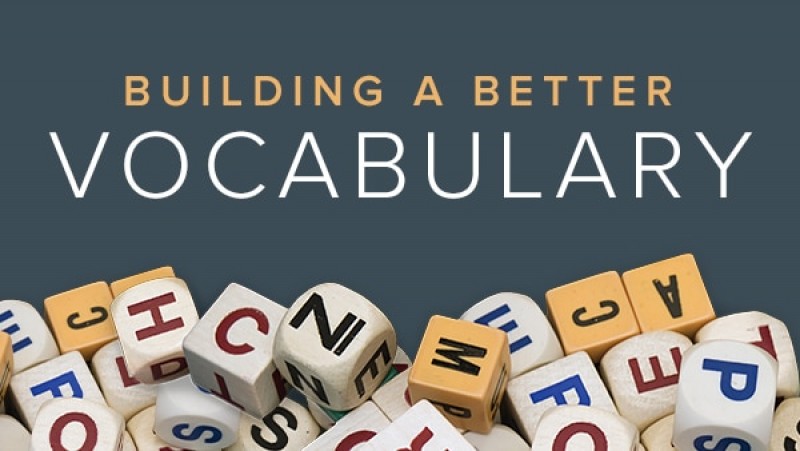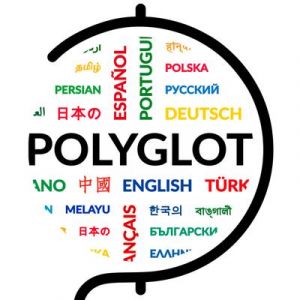Kato Lomb is a famous Hungarian translator and writer. She is the first sign translator in the world. She wrote many books on how to study foreign languages. One of them is “How I study foreign languages?”
She studied Russian, when she was in the bomb shelter and read “The dead souls” by Gogol. Spanish was studied from the translation of the novel “Gentlemen prefer blondes”. She considered that the secret of language study is not in skills, but in diligence, motivation and well-established system.
Today we are going to share some short notes and methods how to study languages more effectively (it is a bit adapted to the modern digital age).
1. Buy a thick vocabulary! «The experience tells me not to buy small dictionaries! They have become unnecessary and I have to search for a word in a bigger one. The first task of the dictionary is to tell you about the basics of phonetics and reading. Please, find the names of nations, countries and cities in the language that you are going to study. Pay attention to correlation of letters and sounds. Moreover, you do not have to go to study words at once. Look at them first.
Pay attention to the means of root formation, different parts of the language and how they are converted to each other.

2. Buy a textbook and fiction literature! "I always buy a pair hoping that one of them will be more understandable. I try not to read too modern literature, because sometimes I do not even understand it in Hungarian. Put a thick dictionary aside. You do not need to search for the translations straight away. Look through the text and try to find something familiar. When reading the book for the first time, write only words that you understand without a dictionary. Each time you read a book, just repeat words that you understand. It is important to do it in the context
3. Listen! "A few years ago, I worked in England with a very nice, educated translator-interpreter. Soon as we met, I immediately asked him to fix my mistakes. In three weeks, reproached him that he had not corrected any error. Did not I do any one? "Oh, so many!" - He answered. "However, we are British, and we are so accustomed to the mistakes of foreigners, that we have developed an automatic mechanism for their correction. As soon as it comes to consciousness, it acquires the correct form ".
At this point, you should start working on the pronunciation. Kato strongly recommends finding radio stations that are broadcasting the language you are studying. However, there are numerous audiobooks, which provide wider choice. As soon as you hear an unfamiliar word, try to write it straightaway. As soon as the program or section in the book ends, look the translation up in the dictionary.
4. Find a tutor! Our service offers you a wide range of tutors, who correspond to your price and taste. Moreover, you can find fluently speaking, but also a native speaker.
5. Translate! "Speaking a foreign language is a matter of habit, I would even say, a routine. The only misfortune is that your vocabulary does not grow in case you use only that knowledge that you are currently having. It does not enrich the syntax arsenal. “Now that you already know a certain number of words, combinations, you have an idea of the grammatical form and structure of the sentence. Translation into a foreign language will help you consolidate this knowledge and reveal your main mistakes.

6. Immerse yourself in the linguistic environment! Here you have the chance to get useful expressions and phrases. This tip is the most recommended one, but you do not need to overestimate it. If you did not speak the language of the country where you came, you will return home with the same luggage of knowledge. Anyone who speaks fluently will notice changes. However, this method will be useful for those, whose level is below average. The same methods can be used when studying the language in the environment: dictionary and notebook for records. By the way, the "linguistic environment" can be found without leaving the country. Movies and TV shows without voice translation will come in handy, as well as translate social networks into the language you are learning.
TEN COMMANDMENTS OF POLYGLOT
- Train language every day. At least for ten minutes, but every day.
- If you get tired and think of leaving a language, find another way to study it: watch the movie, leave the tutorial exercises and look in the dictionary.
- Do not crank and learn words only in context.
- Firstly, study the phrases that you will have to use most often. The most important are "Sorry, I did not understand" and "Repeat please".
- Conceivably translate everything. Practice it constantly.
- Do not re-read your own unmanageable exercises, learn only the corrected options.
- Remember the phrases in the first person singular.
- Study a foreign language simultaneously in different ways: read, listen, speak, translate, do exercises. Language is a fortress that needs to be sacked from all sides.
- Do not be afraid to make mistakes; ask someone to correct the mistakes.
- Be sure that you will definitely achieve the goal of having unusual language abilities. If it turns out that your abilities are quite common, tell yourself that you are smart enough to master a simple thing like a language. Remember that all textbooks are imperfect, all dictionaries are incomplete, all languages are complex, and the hardest thing is your native language.

